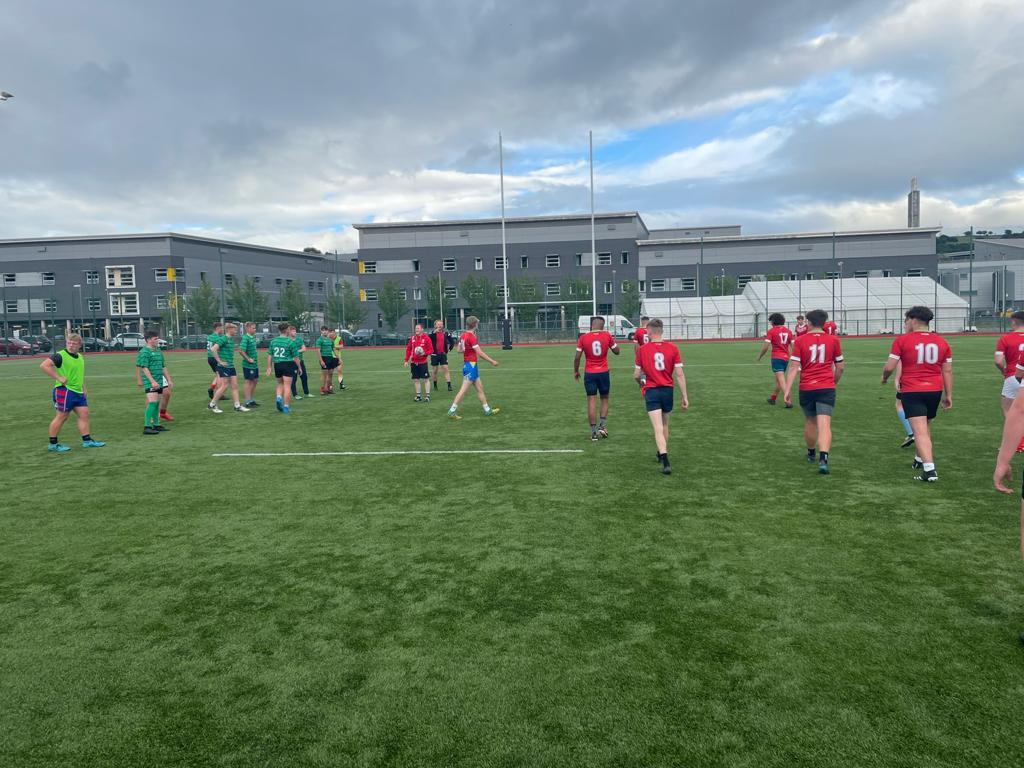It’s a big happy 18th birthday to this season’s Wales U17 captain Lewis Pinder.
We couldn’t have done a similar birthday wish 21 years ago, as at that time, there was no junior rugby league development in Wales.
This week however, we’ve proved that there’s an appetite for junior rugby league in Wales for 12 months a year, as a new development programme, in association with Coleg y Cymoedd, started for U14s, U16s and U18s boys.
Headed by Mark Jones, head of rugby league development at Coleg y Cymoedd and National Development Manager at Wales Rugby League, he’s proud that over 100 boys turned up for the initial taster sessions.
He said: “The aims of the regional programme is to deliver three different eight-week training blocks and playing an origin representative match at the end of each block.
“All the coaches will follow our WRL Players to Leaders programme developed by Martin Crick of the Rugby League European Federation and Phil Jones of Warrington Wolves. Players to leaders is designed to bridge the gap between community and the international pathways. Teaching the Rugby League nuisances that those in the north of England learn at an early age.
“We had an excellent turn-out this week at the taster sessions over well over 100 players. It was nice to see the new coaches take complete control of their respective origin and age groups with the torrential rain not deterring the U14s on Thursday night.
“Girls’ taster sessions for U12s, U14s and U16s will be in November, plus there will be development sessions in North Wales in the new year for both boys and girls, with dates to be confirmed. Champion Schools matches will start again next month.”
Coleg y Cymoedd is where the Wales Rugby League National Development Academy is based, and developing the Wales internationals of the future, male and female, has never been more progressive.
But it was all so different 21 years ago. We did have a couple of successful student sides at Cardiff and Swansea, a Wales Student international side and an RFL academy side in Cardiff Demons, but the professional side was suffering.
Twenty-one years ago today, Wales beat Cook Islands 38-6 in Wrexham in the 2000 Rugby League World Cup and whilst the team was full of Welshmen passionate to put on the red shirt, not one of them was born in Wales. This is the first out of just two occasions this has ever happened in Welsh international history in the 13-person game, the other being the next match against Lebanon.
Something had to be done about this and those in charge knew it. Then Wales head coach Clive Griffiths famously spoke out after the final group game of that World Cup in regards to the lack of development and he had to call John Devereux and Paul Moriarty out of retirement to make up the numbers for the quarter-final win over Papua New Guinea.
Between 1908 and 1995, the Wales Rugby League internationals were selected primarily from players who started off in rugby union then went north to earn a legitimate crust for playing rugby. When rugby union went openly professional in August 1995, the sporting world was about to change and five years later, Wales were relying on heritage players, Billy Boston’s grandson Wes Davies, Clive Sullivan’s son Anthony and Norman Harris’s grandson Iestyn were just three players proud to represent the Dragons 21 years ago today.
However those in charge knew that new players were needed and that they had to be developed from youth in this new sporting world. Less than a year later, Wales played their first junior international, an 84-0 win for an U15 side against Scotland in Warrington. Just five months later, a Wales U18 side played against France and then in a Home Nations tournament against England and Scotland. International junior rugby league was born and the players were being selected locally from sides like Cardiff Demons and Cynon Valley Cougars.
Winning an U16 cap in 2004 was Lee Williams and just four years later he and Gil Dudson became the first two players to graduate all the way from Wales U16 up to the Wales men’s side.
In 2015, when Wales won the European Championships, 12 of the 17 players were born in Wales with a further two going through the WRL development system. In fact, a total of 31 players have turned out for the Wales men’s side after previously playing junior internationals for Wales. Most of those started out at local clubs, who this year played their first competitive season at U10s level with over a thousand Welsh-born players turning out locally through the WRL local leagues.
Lewis Pinder, whose birthday it is today, plays in the Wigan Warriors academy after starting out locally at Wrexham Bradley Raiders. He’s just one example of how the system in Wales is working and continues to advance.
All of this couldn’t have happened without the hard work of all volunteers and professionals over the last two decades. A lot to celebrate today indeed.

